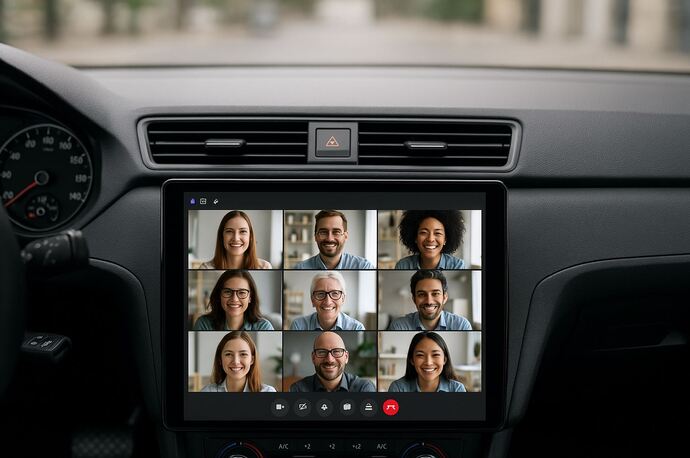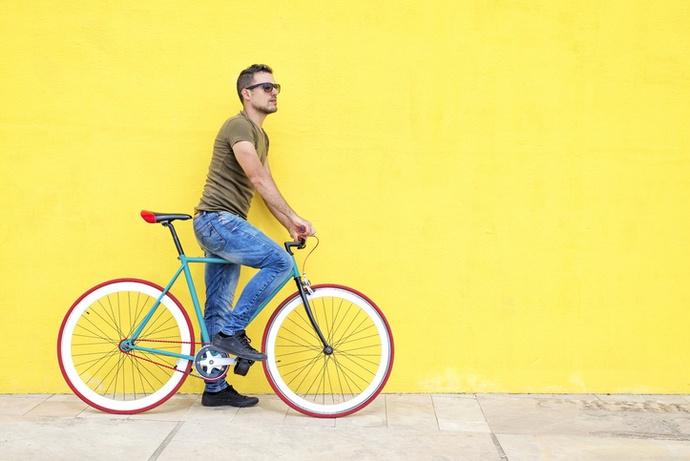Illegal driver calls police on himself
April 29, 2021

Some drivers have become so used to breaking the law with impunity, that it appears they now feel entitled to call the police when they're unable to drive illegally.
The image below captures the glorious moment this week when a disgruntled driver called police to complain his route through Oriel Square in Oxford was blocked by members of the Oxford Pedestrians Association. The police patiently explained that cars are not permitted to drive through the square between 7.30am and 6.30pm - as explained by the large traffic signs. However, this simple fact did not stop the driver remonstrating with police for some time.

This bizarre sense of driver entitlement flourishes for many reasons - not least the absence of a systematic approach to the reduction of road danger - but it can be stopped in its tracks by us as society if and when we decide.
A poignant example of frustration at road danger galvanising people power was broadcast on Dutch national tv in the early 1970s.
According to the website bicycledutch: "The documentary was about the Amsterdam neighbourhood “De Pijp” which was about 100 years old at the time. The homes were run down and small. The streets were never built, nor fit for all the cars brought in by the 40,000 people living in the small area and its many visitors. This led to an overpopulated neighbourhood with a lot of dirt and filth and especially the children suffered. The documentary is one of a series and this particular episode looks at the situation from a child’s perspective."
Below is an abridged version subtitled in English.
The road rage of the white van driver and the resolute way in which others dismiss the idea of streets closed to motorised traffic are incomprehensible to the Dutch today, but unfortunately, this sort of attitude is culturally ingrained here in Britain.
The Dutch documentary inspired journalists to write opinion pieces which in turn played a part in the formation of the “Stop de Kindermoord” (stop the child murder) movement, and series of mass protests and ultimately a change in culture. The rest is history. The Netherlands lead the world with their systematic approach to road danger reduction and a vision of reducing road deaths to zero.
Unfortunately, when it comes to a systematic reduction of road danger, Britain is 50 years behind the Netherlands...and counting.
According to Erik Teteroo, a transport planner who advises the Dutch ministry of transport and environment; "The UK is, in some sense, 50 years behind the Netherlands. If you look at what we've achieved over those 50 years and what you're facing now. You're still facing a very high number of casualties, but you're also facing, as we had in the 70s with the oil crisis, a global problem with the climate. The climate issue urges for less carbon dioxide, less car use and more alternative like cycling."
The Netherlands is now regarded as a world leader in transport planning, but it wasn't always that way. Although the there is a strong cycling tradition among the Dutch, by the late 1960s, buildings in Amsterdam were being bulldozed and canals filled with concrete to make way for new roads. Watch our crowdfunded documentary to hear first hand from the activists who helped turn the tide.
Stop Killing our Children examines how road danger damages us all, whatever our age and however we travel, and questions our collective blindness to both its cause and remedy.The 40-minute, crowdfunded film is narrated by the BBC’s John Simpson and features interviews with Chris Boardman, Dr Rachel Aldred, Dr Ian Walker, George Monbiot and the founders of the Stop de Kindermoord movement amongst others. Please watch and share our film. Please help turn the tide against road danger.
ETA - The ethical choice
ETA cycle insurance offers a sympathetic policy on the storage of bicycles. For example, as long as a shed door is locked, the bicycles stored within do not require any further security. On top of that, our policy covers stolen quick-release components. And for added peace of mind, we handle claims ourselves in-house. Oh, and we never devalue bikes, no matter their age. Hardly surprising The Good Shopping Guide judges us to be Britain's most ethical provider.
Information correct at time of publication.







